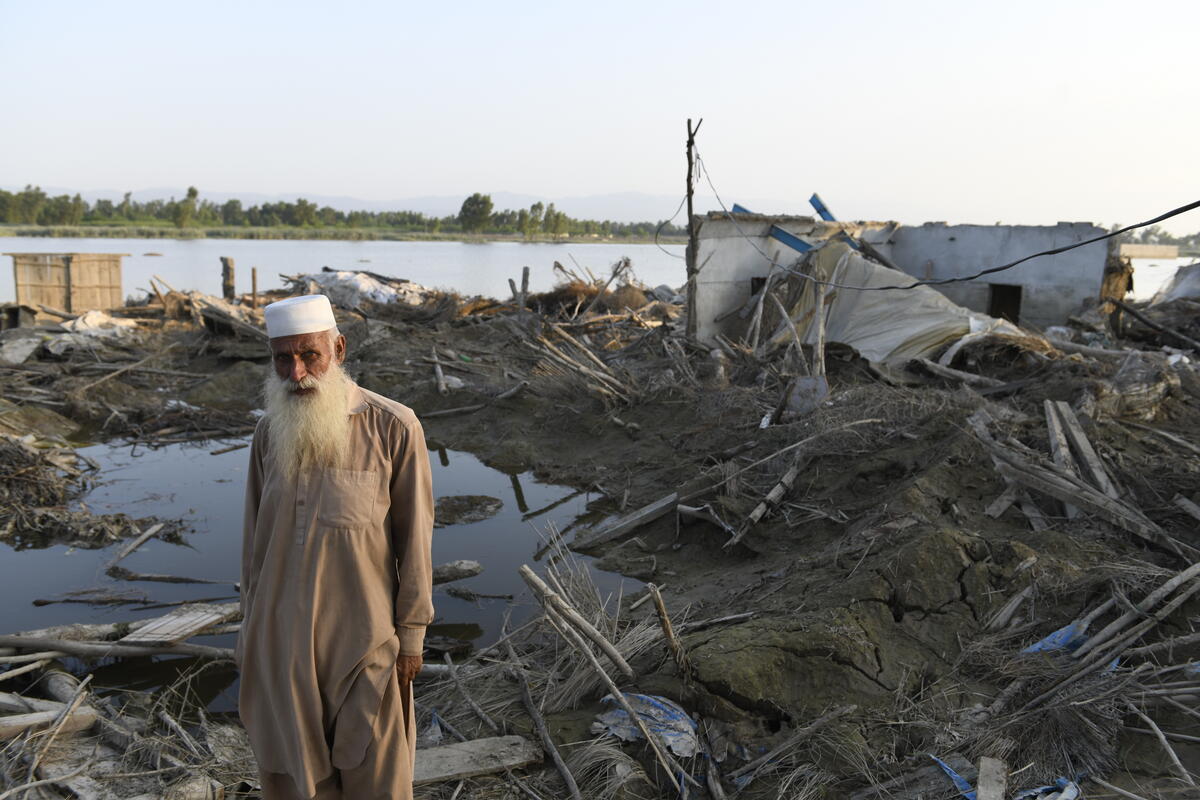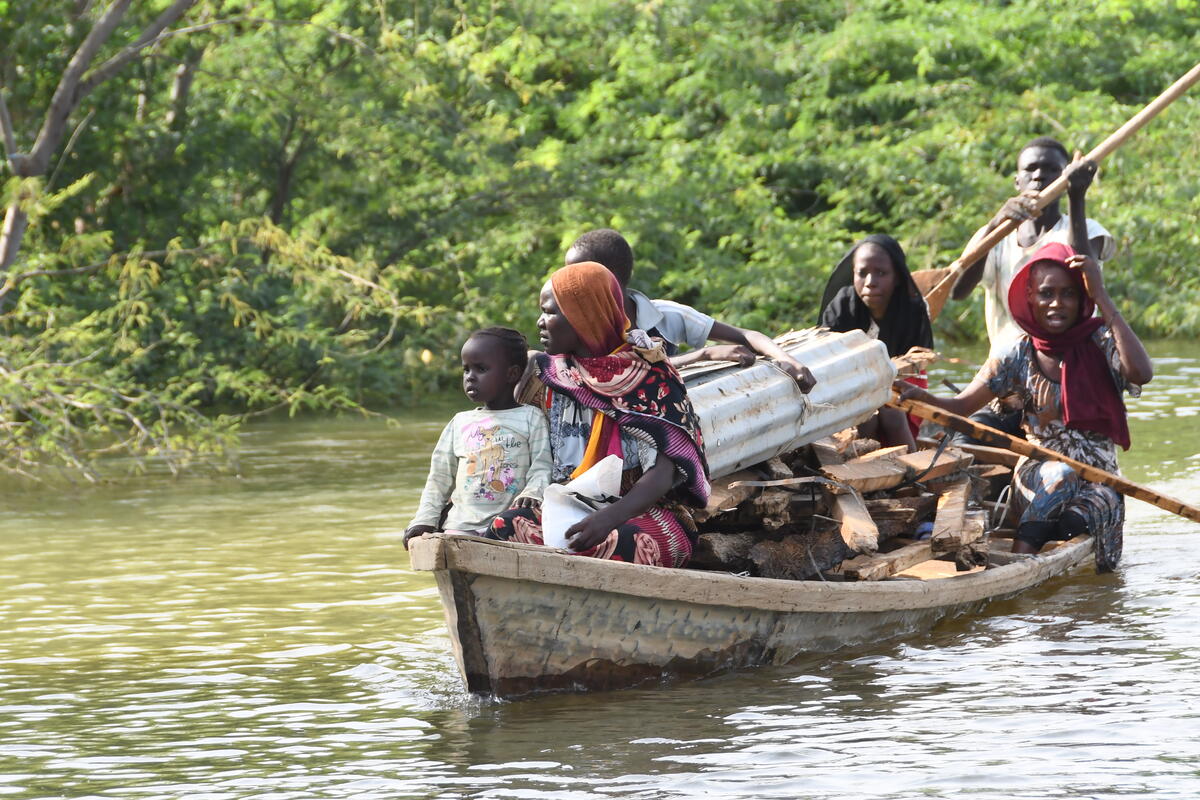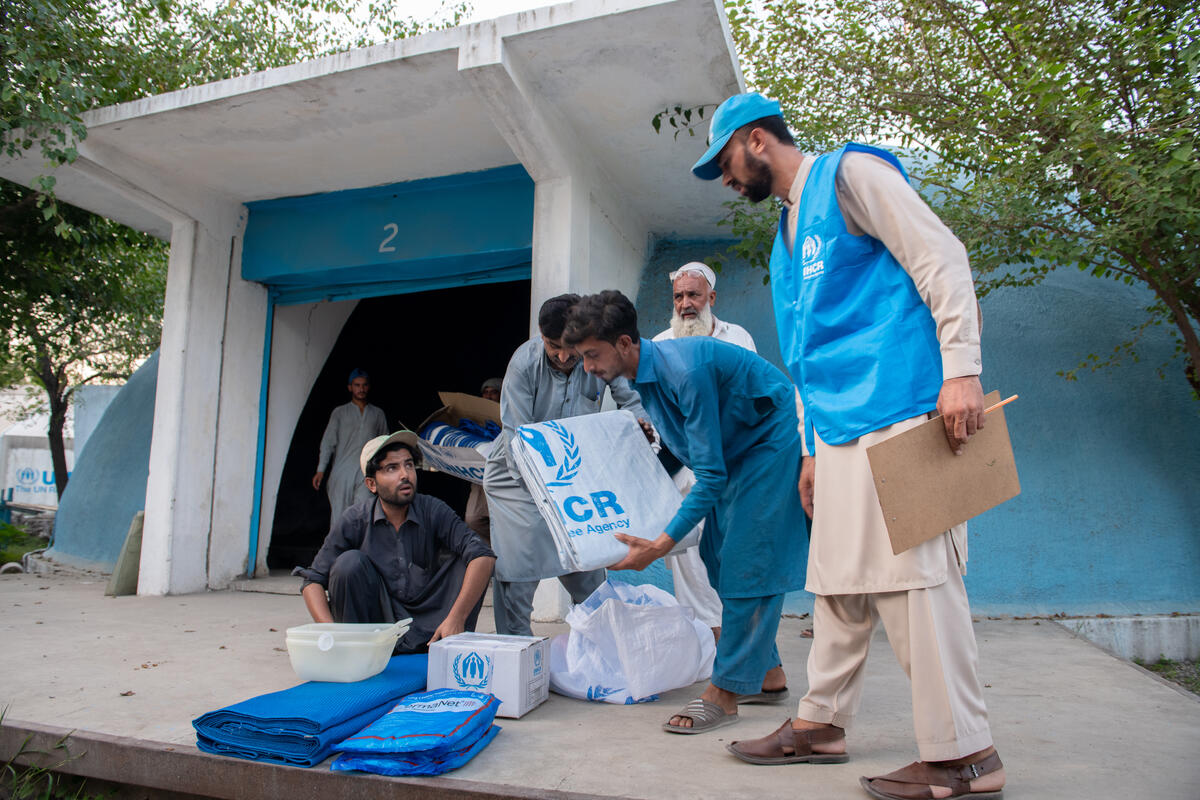Thousands of refugees homeless after floods hit Kenyan camp
Thousands of refugees homeless after floods hit Kenyan camp

DADAAB, Kenya, May 2 (UNHCR) - Thousands of Somali refugees in north-eastern Kenya have been rendered homeless after heavy rains destroyed hundreds of shelters in Dadaab refugee camp. A majority of refugees' homes in two of the three camps in Dadaab - Ifo and Dagahaley - collapsed or were washed away by torrential rains on Thursday.
"There have been no flood-related deaths, but considerable damage has been caused, especially on shelter, where several structures have collapsed or been washed away," said George Okoth-Obbo, the UN refugee agency's Representative in Kenya.
On Friday morning, UNHCR staff in Dadaab began to assess the damage caused and to outline arising needs. By mid-day, field monitors in Ifo camp had counted up to 500 destroyed tukuls (dome-shaped grass-thatched structures used by Somali communities). A transfer of refugees to drier parts of the camp is being considered. But movement of staff within Ifo camp and between Ifo and Dagahaley camps - some 10 km apart - was seriously hampered by impassable roads, many of them still waterlogged.
There are fears that food distributed to refugees only a few days ago has also been destroyed by the floodwaters. Ifo and Dagahaley camps together house more than 80,000 refugees, mainly from neighbouring Somalia.
In the Kenyan capital, Nairobi, UNHCR staff were urgently preparing to airlift fuel supplies to Dadaab. Fuel stocks - which began to run out before the floods struck - are needed to run vehicles and generators used in offices (including those of the refugee agency and implementing partners), the hospital and for water pumps throughout the camp.
Describing the fuel situation as critical, the head of the UNHCR office in Dadaab, Daisy Buruku, said diesel would be airlifted on Saturday from Nairobi to Dadaab, some 400 km away.
"Diesel has to be airlifted as the Garissa-Dadaab road is completely cut off," said Buruku, referring to the single road which links the district headquarters, Garissa, and the remote three-camp complex in Kenya's north-eastern province. All road traffic to Dadaab must go through Garissa.
Buruku expressed fears of an outbreak of water-borne diseases as large numbers of pit latrines in the camp had collapsed. The refugee agency is also worried about the health and safety of children seen playing in the stagnant water.
On Thursday, UNHCR suspended a planned airlift of some 300 refugees who were scheduled to fly from the camp to their homes in Galkayo and Bosasso, in central and north-eastern Somalia respectively. Five daily flights had been arranged to aid the return of the refugees. UNHCR staff could not pick up refugees from the camps to the airstrip as roads remained impassable. The repatriation will be re-started as soon as the current crisis subsides.









